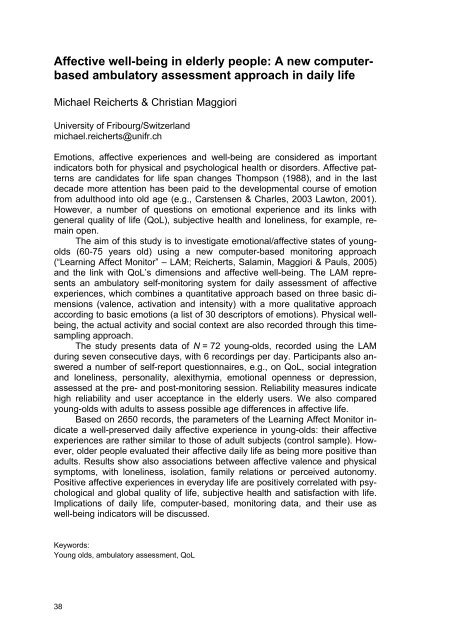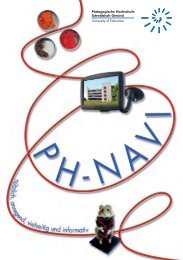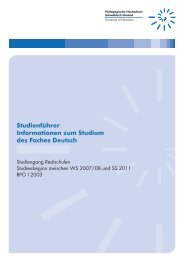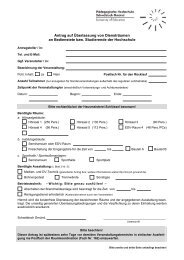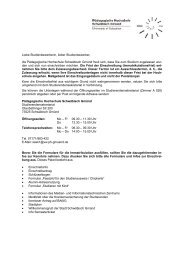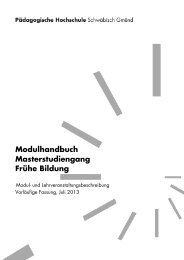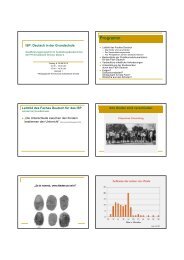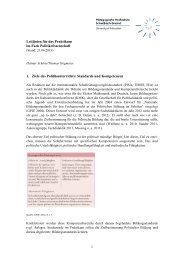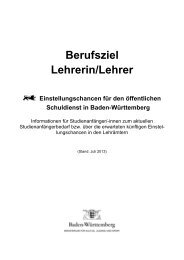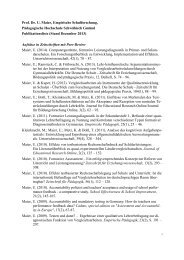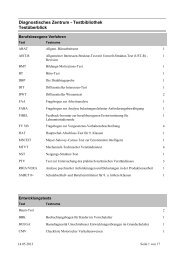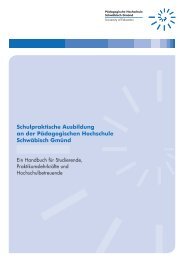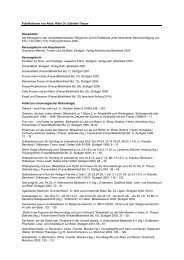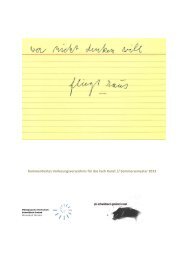Beiträge zur Gesundheitspsychologie - Pädagogische Hochschule ...
Beiträge zur Gesundheitspsychologie - Pädagogische Hochschule ...
Beiträge zur Gesundheitspsychologie - Pädagogische Hochschule ...
Sie wollen auch ein ePaper? Erhöhen Sie die Reichweite Ihrer Titel.
YUMPU macht aus Druck-PDFs automatisch weboptimierte ePaper, die Google liebt.
Affective well-being in elderly people: A new computerbased<br />
ambulatory assessment approach in daily life<br />
Michael Reicherts & Christian Maggiori<br />
University of Fribourg/Switzerland<br />
michael.reicherts@unifr.ch<br />
Emotions, affective experiences and well-being are considered as important<br />
indicators both for physical and psychological health or disorders. Affective patterns<br />
are candidates for life span changes Thompson (1988), and in the last<br />
decade more attention has been paid to the developmental course of emotion<br />
from adulthood into old age (e.g., Carstensen & Charles, 2003 Lawton, 2001).<br />
However, a number of questions on emotional experience and its links with<br />
general quality of life (QoL), subjective health and loneliness, for example, remain<br />
open.<br />
The aim of this study is to investigate emotional/affective states of youngolds<br />
(60-75 years old) using a new computer-based monitoring approach<br />
(“Learning Affect Monitor” – LAM; Reicherts, Salamin, Maggiori & Pauls, 2005)<br />
and the link with QoL’s dimensions and affective well-being. The LAM represents<br />
an ambulatory self-monitoring system for daily assessment of affective<br />
experiences, which combines a quantitative approach based on three basic dimensions<br />
(valence, activation and intensity) with a more qualitative approach<br />
according to basic emotions (a list of 30 descriptors of emotions). Physical wellbeing,<br />
the actual activity and social context are also recorded through this timesampling<br />
approach.<br />
The study presents data of N = 72 young-olds, recorded using the LAM<br />
during seven consecutive days, with 6 recordings per day. Participants also answered<br />
a number of self-report questionnaires, e.g., on QoL, social integration<br />
and loneliness, personality, alexithymia, emotional openness or depression,<br />
assessed at the pre- and post-monitoring session. Reliability measures indicate<br />
high reliability and user acceptance in the elderly users. We also compared<br />
young-olds with adults to assess possible age differences in affective life.<br />
Based on 2650 records, the parameters of the Learning Affect Monitor indicate<br />
a well-preserved daily affective experience in young-olds: their affective<br />
experiences are rather similar to those of adult subjects (control sample). However,<br />
older people evaluated their affective daily life as being more positive than<br />
adults. Results show also associations between affective valence and physical<br />
symptoms, with loneliness, isolation, family relations or perceived autonomy.<br />
Positive affective experiences in everyday life are positively correlated with psychological<br />
and global quality of life, subjective health and satisfaction with life.<br />
Implications of daily life, computer-based, monitoring data, and their use as<br />
well-being indicators will be discussed.<br />
Keywords:<br />
Young olds, ambulatory assessment, QoL<br />
38


